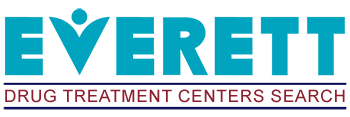Relapse Prevention Programs in Everett, MA
Overcoming a drug or alcohol addiction is a long and gradual process that requires time, commitment, and professional support. Medical detox programs in Everett are often initiated at the outset of this process, followed by inpatient or outpatient rehab and aftercare support services. Relapse prevention programs and systems are integrated into the rehabilitation process at many levels, with patients taught how to identify potential triggers, avoid high-risk situations, and cope with the challenges of life as they arise. While the immediate goal of drug treatment is abstinence, relapse prevention programs are also needed to promote long-term recovery in the months and years that follow.
What is Relapse?
Also known as recidivism, relapse takes place when people start using drugs or alcohol again after a prolonged period of abstinence. Relapse can occur at any time, with some people returning to their old habits immediately after treatment and others staying sober for years before slipping up. Because drug addiction is a learned behavior maintained by brain changes, dedicated measures are needed to break old habits and set up new ones. While medical detox and pharmacotherapy programs can be successful in breaking physical dependencies, behavioral and cognitive systems are also needed to create new psychological associations. According to the National Institute on Drug Abuse (NIDA), between 40 and 60 percent of drug treatment admissions relapse at some time, with this figure highlighting the importance of relapse prevention systems.
Emotional Relapse
Physical relapse represents a breakdown of the recovery process that takes place when someone returns to drug or alcohol use. Despite the accuracy of this definition, however, relapse is also a transgression that takes place slowly over time. For example, the signs of emotional relapse may be recognized weeks or months before a physical relapse event, with therapists able to help patients recognize the warning signs before it’s to late. Common signs of emotional relapse include sadness, anger, frustration, mood swings, resentment, and other unhelpful emotions.
Mental Relapse
Mental relapse represents the next stage of the relapse process, with patients now starting to engage with the possibility of a relapse event. Common signs of mental relapse include drug cravings, drug fantasies, and romantic notions of drug use. Unless these warning sings are recognized and treated, a physical relapse event is highly likely. By staying engaged with professional treatment during rehabilitation and aftercare, recovering drug addicts can get the help they need to identify these warning signs before they lead to a physical relapse event.
Trigger Recognition
Relapse prevention programs help patients to recognize triggers and avoid high-risk situations if possible. By understanding the events likely to lead to relapse, patients can make the psychological and lifestyle changes they need to turn their lives around. Common triggers include tiredness, anger, social isolation, depression, social proximity, location proximity, and poor frustration tolerance. By learning to be mindful of their thoughts and feelings as they arise, and controlling their environment where possible, recovering addicts can develop the coping skills needed to make positive and long-term lifestyle changes.
Everett Drug Treatment Centers is your primary recovery resource. Please give our recovery advocates a call today at (617) 553-9495 for more information.
